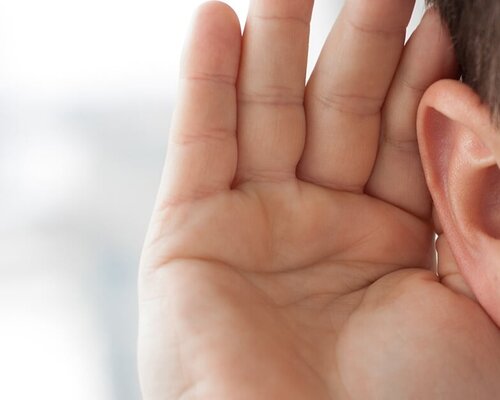Do you have doubts about your hearing?
Often it is our loved ones who point out to us that we do not hear as sharply as we used to. At first, we may deny or dismiss these comments. Here are some claims to consider:
- Do you often have to ask for repetition of what is said?
- Do you have to keep turning up the volume of the TV or radio?
- Do you catch yourself speaking louder because you think others can't hear you?
- Do you often miss conversations or can't follow them in noisy environments?
- Do you no longer hear ambient sounds, such as the rustling of leaves or birdsong?
- Do you experience constant tinnitus or a ringing in your ear?
If any of these statements apply to you, chances are you are hearing impaired to some degree. Read on to learn more.
If none of these statements apply to you, it is still important to protect your hearing to prevent hearing loss.
What exactly does hearing impairment mean?
Hearing impairment doesn't just mean that you don't hear sounds well. It can also mean that you hear sounds less sharp or sharper than normal. Often loud sounds are extra loud while soft sounds are harder to hear.
Sometimes hearing impairment is accompanied by additional sounds such as murmurs or beeps, which is also called tinnitus.
At a young age, hearing loss can interfere with speech development, while untreated hearing loss is associated with dementia later in life. So don't hesitate too long to take action. Read more about the symptoms of hearing loss.
What causes hearing impairment?
Hearing usually begins to decline gradually from about age 30, so old age is a common cause of hearing loss. This process is usually noticed only in people 50 and older, who sometimes think they are still too young for hearing aids. But the earlier you do something about hearing loss, the more effective it can be.
It is important to note that hearing loss is also becoming increasingly common among young people today, for example, due to exposure to music that is too loud.
Finally, hearing loss can also be caused by heredity or specific medical factors, and sometimes the cause is unknown. These different causes lead to different forms of hearing loss.
In short, you don't have to feel old if you notice your hearing is deteriorating.
What are the consequences of hearing impairment?
The consequences of hearing loss should not be underestimated. Not only can it cause embarrassment, but it can also be mentally exhausting. Your brain has to work harder to process sounds, which can lead to social isolation. Those around you may not always understand your situation and may become frustrated because they have to talk repeatedly or because you miss important information. Try to talk candidly with those around you about how hearing loss affects you and how you can find a viable solution together.





